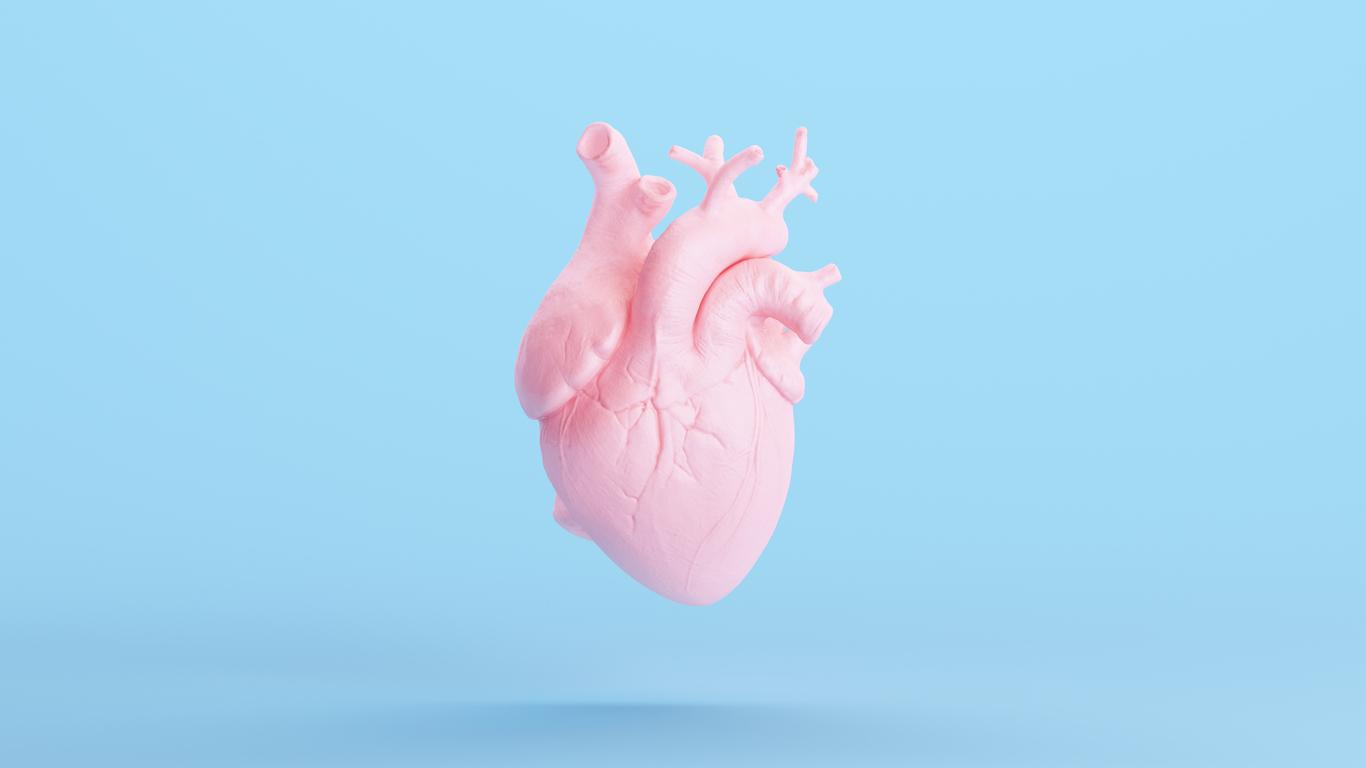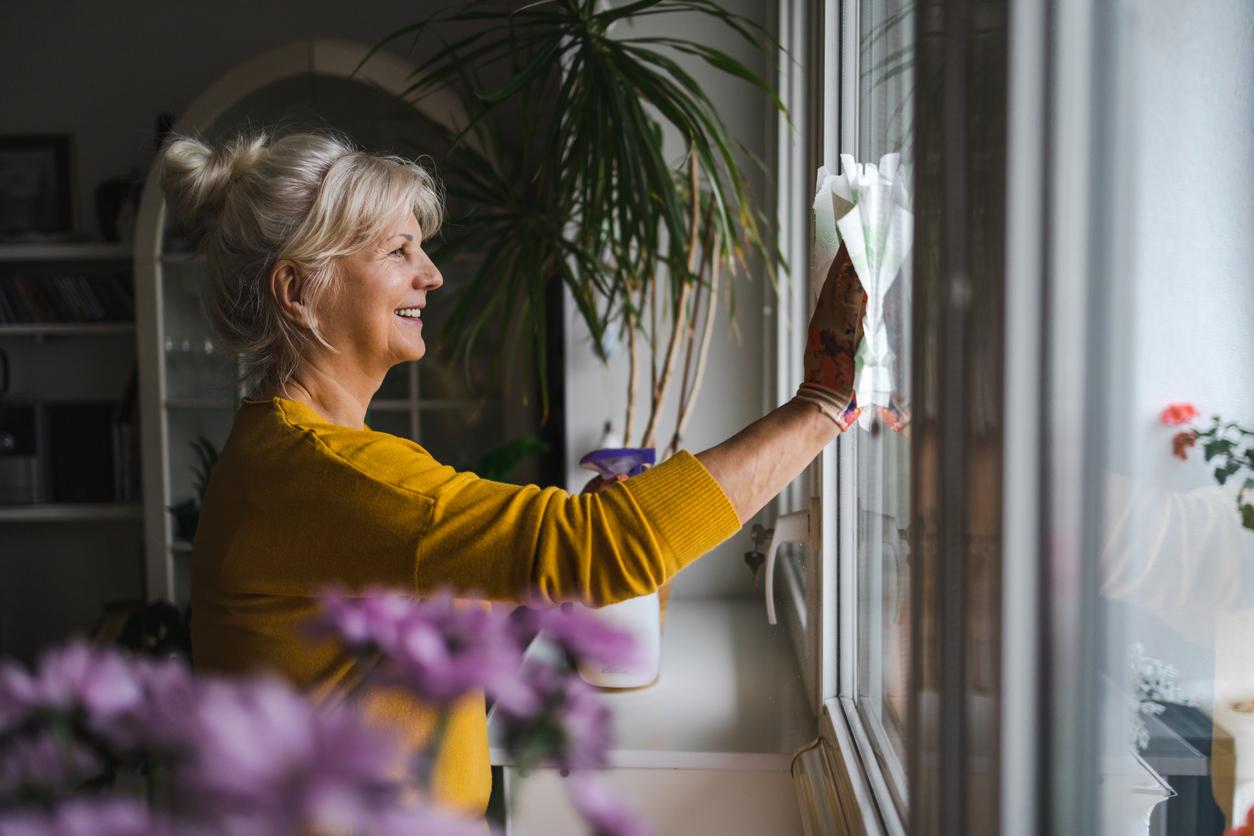
‘Women with heart problems: don’t be put off’
The mission of professor and heart specialist Angela Maas – better cardiological care for women – is not taken seriously by everyone. But she never let that stop her.
Acute, severe chest pain is what men feel when they have a heart attack or arteriosclerosis. It is different with women. They are short of breath, overtired, dizzy. They have trouble sleeping or palpitations. Complaints that sometimes simmer for years. Women don’t always recognize these symptoms, and neither do doctors. Frustrating, says Angela Maas. That’s why she keeps shouting it from the rooftops: men’s and women’s hearts are different. So approach them like that!
You have been proclaiming this message for over 25 years. How is it possible that the complaints that women have are still not properly interpreted?
“This is partly due to a lack of knowledge. Many people still think that cardiovascular diseases are men’s diseases. But it kills more women than men – it is even the number one cause of death for women worldwide. Yet both female patients and doctors are not quick to realize that the complaints may be caused by a malfunctioning heart. A heart attack in women, for example, usually manifests itself differently than in men, because it has a different cause. In women you see more spasms, cramps. As a result, they have a wavy pattern of complaints with chest pain and lack of air. That pain can extend to their upper abdomen, armpit, jaw, and the area between their shoulder blades. Not everyone knows that.”
Are there any other reasons?
“Cardiology is originally a male profession, with a male approach. The profession has developed mainly in the technical field: angioplasty, the fitting of pacemakers, making heart films. But the standard heart films (ECG) are derived from the male standard and are less suitable for indicating female complaints. The shape of women’s chests is different and breast tissue gets in the way. That gives a distorted picture. You have to take this into account when you watch such a heart film. The old guard heart specialists are usually not open to the fact that there are differences between men and women in this area. ‘Doctor Maas is crazy’, they say, ‘she has to go to the Efteling, because she still believes in fairy tales.’”
What does that mean for women with heart problems?
“That they are not taken seriously. This morning I spoke to a woman during my consultation who had a heart attack at a young age, so under 50 years of age. She is in a support group with fellow sufferers and told me that many women are still shocked by the horrid way the heart specialist treats them. ‘It’s all right, madam. It’s stuck between your ears’, says such a doctor. Because women do not have classic, male heart attacks, with the accompanying symptoms. But women have no vague complaints, no strange infarctions, they are typical female infarcts with accompanying complaints. The fact that these symptoms are not taken seriously is very unpleasant for the patients. In addition, heart attacks are missed and not treated properly. That can have deadly consequences.”
Can women do something about this themselves?
“I think so. Firstly, it is better for women to tell directly what is bothering them. So don’t start talking about a cousin’s wedding where an aunt suddenly fell over, but just say: this is my problem. A doctor is short on time, so get to the point quickly. Furthermore, I advise women not to interpret their complaints, but only to report them. Don’t start thinking out loud: ‘I’ve been very busy too’ or ‘My mother just passed away’, but just say what’s bothering you. Without shame or guilt. Insist on being taken seriously. Don’t be put off. Ask where the tightness and palpitations you may feel may come from and if there is anything that can be done about it. For example, a doctor can measure your blood pressure or have your cholesterol level tested. There may be no explanation for this. A doctor must substantiate this thoroughly by eliminating possible causes.
One last tip: make sure you don’t lose precious time. When a man has chest pain, he calls a doctor right away. When women feel short of breath or overtired, they often think it’s their fault, that it won’t be anything serious. After a heart attack, women arrive at the hospital on average thirty minutes to several hours later than men. That is partly caused by themselves.”
You once said: a man’s heart has a hard time around 50 years, a woman’s heart around 60 years.
Can you explain that?
“Women are protected for a long time by the presence of estrogenic hormones. This prevents vascular aging, one of the causes of cardiovascular disease. After the menopause, women are catching up. They get more infarcts, strokes and heart failure. This is partly because the production of estrogenic hormones decreases. Their heart and blood vessels suffer as a result. Men are not aware of this protection because they hardly produce any oestrogens throughout their lives. Their hearts start to show wear and tear around their 50s.”
Not everyone takes your mission – better cardiology care for women – seriously. How do you handle that?
“I have been met with scorn and contempt. One day a cardiologist even said to me, ‘I literally puke when I hear the word ‘gender’.’ When I started a cardiology consultation especially for women in 2003, there were general practitioners and specialists who shouted: ‘This is a whim. We’re going to make sure it disappears again.’ That resistance sometimes makes me sad and frustrated, but I’ve never let it stop me. Encountering resistance is a result of running ahead of the troops. I did, however, occasionally hire a coach. Among other things, I learned not to be bitter. Nobody benefits from that.”
What are the bright spots in your struggle?
“Recently, a guideline was published in America for heart attacks in women: how to recognize them, with which complaints they can be associated, how best to treat them and what we still need to investigate. It really is a bright spot for me. Because this makes me feel confirmed in what I have been saying for years, but of course mainly because it will save lives in the long run.”
CV
Angela Maas (59) studied medicine in Groningen. From 1988 to 1992 she worked as a cardiologist in Arnhem, then until 2012 at the Isala Klinieken in Zwolle. Since 2012, she has been professor of Cardiology for Women at Radboudumc in Nijmegen. Together with Toine Lagro, professor of Women’s Studies in Medical Sciences, she wrote Handboek gynaecardiologie, woman-specific cardiology in practice. She also regularly gives lectures on her field. Maas is married and has two sons aged 26 and 25. The eldest is autistic and lives in a sheltered group. The youngest is a mathematician and is working on his PhD at Cambridge.
Sources):
- Plus Magazine















